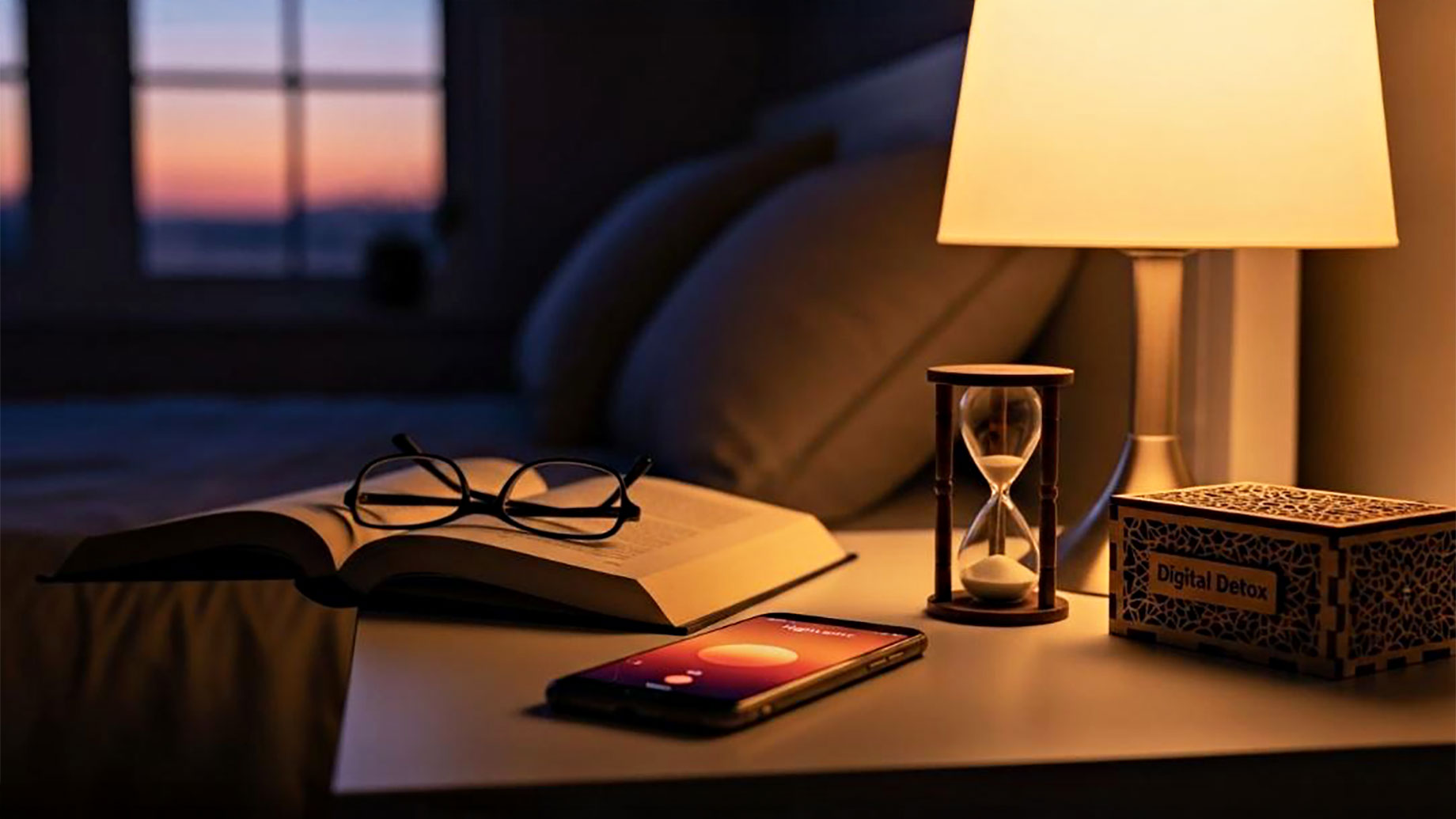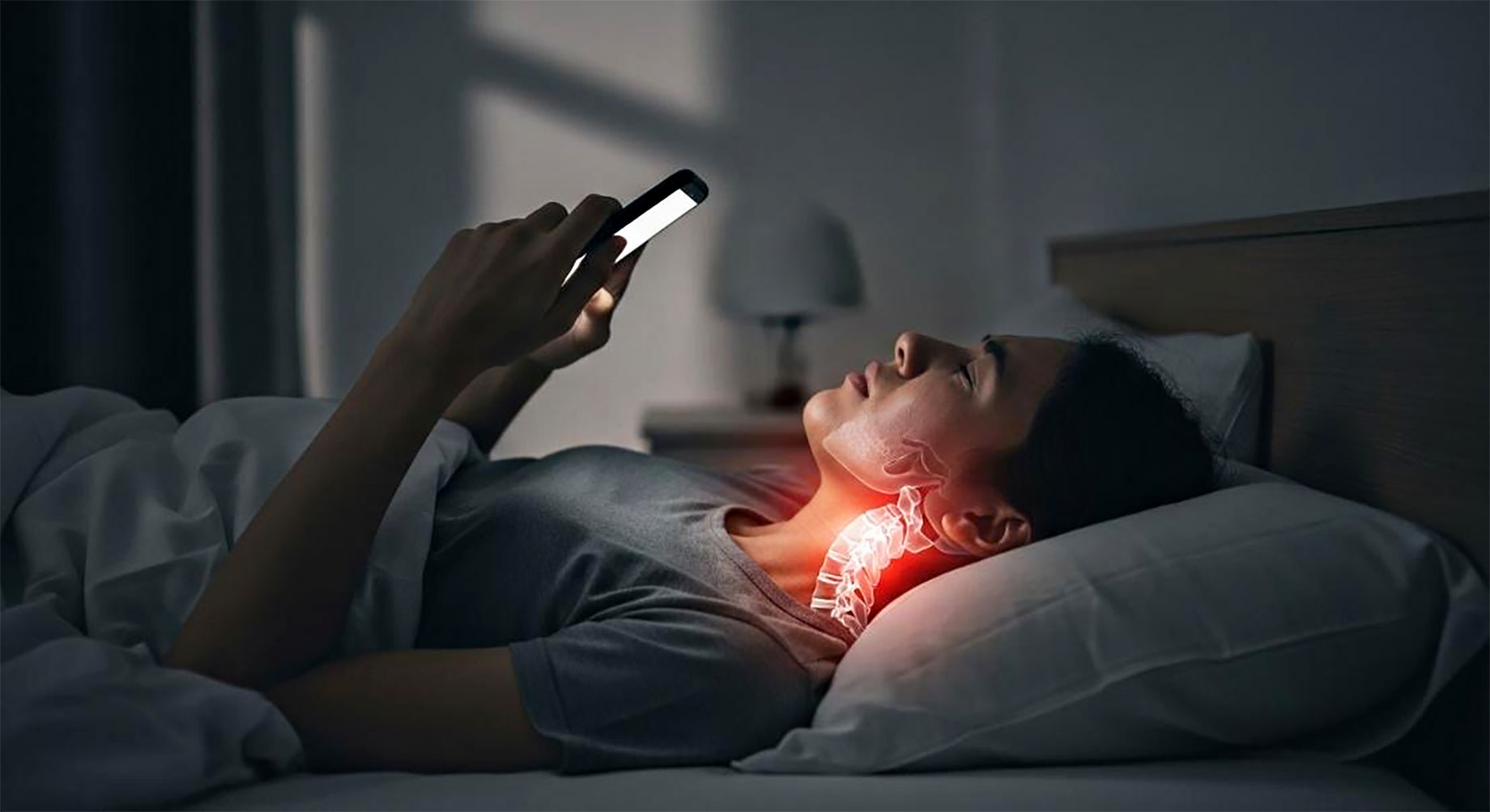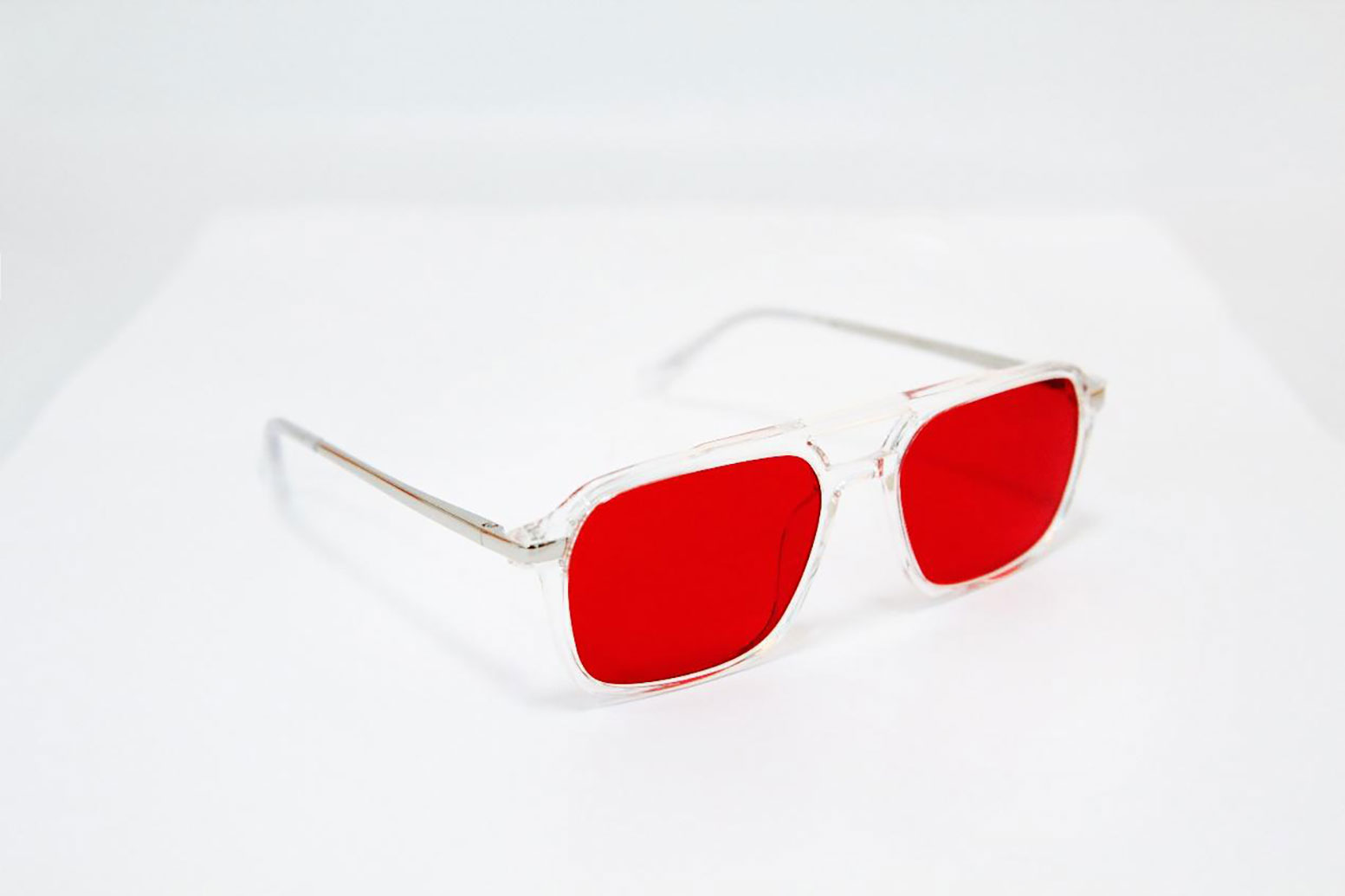
Let’s be honest: most of us sleep with our phones either on the nightstand or right next to our pillow. It feels harmless—like having a loyal companion ready to wake us up with an alarm or entertain us with late-night scrolling. But here’s the chilling truth: sleeping with your phone is quietly wrecking your body and mind.
Science shows that this simple habit can trigger poor sleep, stress, physical strain, and even long-term health issues. The scariest part? You might not even realize it’s happening until it’s already taken a toll.
The Phone Addiction Trap
Phones are addictive—and not by accident. Every time you get a like, a notification, or a win on a mobile game, your brain releases dopamine, the “happy chemical.” Dopamine feels so good that your brain keeps craving more.
That’s why you can’t stop checking Instagram at midnight or scrolling TikTok until your eyes sting. Psychologists even coined a term for it: nomophobia—the fear of being without your phone. For many people, the device isn’t just a tool anymore; it’s an escape hatch from boredom, loneliness, and even anxiety.
But while your phone may ease stress in the moment, at night it flips into a silent saboteur.
Blue Light: The Sleep Killer
Here’s where the science gets serious. Your phone screen (and tablet, laptop, or TV) emits blue light, a short-wavelength light that mimics daylight. During the day, blue light is helpful—it keeps you alert and focused. But at night? It’s a disaster.
When your eyes take in blue light after sunset, your brain gets tricked into thinking it’s still daytime. That means it stops producing melatonin, the hormone that tells your body it’s time to sleep.
No melatonin = no deep, restful sleep.
And without enough REM cycles (the phase where your body heals, restores energy, and processes emotions), you’re left feeling groggy, anxious, and less sharp.
The Fix:
- Set a “digital sunset.” Try turning off screens at least 30 minutes before bed. If that feels impossible, at least dim your phone or use “night shift” mode.
- Use red-tinted blue light blocking glasses. Unlike regular clear or yellow lenses, red lenses block nearly 100% of blue and green light—the exact wavelengths that mess with melatonin. By wearing them an hour or two before bed, you can still use your phone without sabotaging your sleep.
Neck Pain: The Silent Strain

Think about how you hold your phone in bed. Chances are, you’re lying down, chin tucked, neck bent forward. Over time, this posture creates text neck—a strain on the muscles and spine that can lead to chronic pain and stiffness.
In extreme cases, doctors report that long-term misuse can even require corrective treatment or surgery.
The Fix:
- Don’t use your phone lying flat. Prop yourself up with a pillow behind your back or, better yet, keep the phone away from the bed entirely.
- Do a “tech neck stretch” before sleep: roll your shoulders, tilt your head gently side-to-side, and stretch your arms overhead to reset your posture.
Germs You Don’t Want to Know About
Here’s a gross fact: your phone is dirtier than a toilet seat. In one study, every single phone tested carried traces of fecal contamination.
Think about it—you touch door handles, shopping carts, and bathroom surfaces all day, then touch your phone… and later your face or food. If you bring your phone to bed, you’re basically tucking in with a bacteria farm.
The Fix:
- Wipe your phone daily with disinfectant wipes or a UV sanitizer box.
- Wash your hands before bedtime if you’ve been using your phone.
- And please—don’t eat in bed while scrolling TikTok.
The Radiation Question
Phones also emit electromagnetic radiation. Now, before panic sets in, current research is inconclusive on whether it causes serious harm like cancer. But here’s the catch: we’ve only been using smartphones for about two decades. In scientific terms, that’s a blink of an eye.
Who knows what long-term exposure looks like in 50 or 100 years?
The Fix:
- Play it safe. Keep your phone at least a few feet away while you sleep. Charging it across the room not only reduces exposure but also stops you from midnight scrolling.
- If you use your phone as an alarm clock, invest in an inexpensive digital clock instead.
Anxiety and Mental Health Effects
Even if you manage to fall asleep with your phone nearby, the constant notifications, buzzing, and glowing screens can create micro-arousals—tiny disruptions in your sleep cycles that keep your brain half-alert.
Over time, this “always-on” state increases stress hormones like cortisol, which are linked to anxiety, depression, and poor focus.
The Fix:
- Turn off non-essential notifications before bed. Do you really need to know about that group chat at 1 a.m.?
- Try setting your phone to “Do Not Disturb” mode or keeping it in another room altogether.
The Better Bedtime Ritual
So, if your phone is out, what do you do instead? The secret lies in creating a bedtime ritual that signals your body it’s time to rest.
Here are some ideas:
- Read a book. Old-school, yes, but incredibly effective for winding down.
- Stretch or meditate. Just 10 minutes can calm your nervous system.
- Journal. Dump out thoughts, to-do lists, or worries so your brain can actually switch off.
- Wear red lens glasses. This allows you to dim the harmful effects of blue light if you must check your phone, while still telling your body it’s nighttime.
Why Red-Tinted Glasses Work So Well
You might be wondering: why red lenses and not just yellow or clear blue-light filters?
The answer lies in wavelengths. Blue light (around 450–495 nm) and green light (495–570 nm) both suppress melatonin production. Yellow or amber glasses block some, but red-tinted glasses block nearly all of it.

That’s why red lens glasses are often recommended for shift workers, frequent travelers with jet lag, or anyone who struggles with falling asleep. They give your brain the signal that it’s nighttime—even if you’re staring at a screen.
Think of them as a shield: you can still unwind with your favorite Netflix show or scroll for a bit, but without sabotaging your body’s natural sleep rhythm.
The Takeaway: Rethink Your Nightstand
Phones are amazing tools. They connect us, entertain us, and help us work faster than ever. But in the bedroom, they’re wolves in sheep’s clothing.
Sleeping with your phone is slowly killing you—not dramatically, but through accumulated stress, poor sleep, and subtle health risks. The good news? The fixes are simple:
- Put the phone across the room.
- Clean it regularly.
- Turn off the endless pings.
- Prepare a pair of glasses with red lenses.
Remember: you only get one brain, one body, and one night of sleep at a time. Don’t let your phone steal it from you. Start making changes tonight—you’ll thank yourself in the morning.